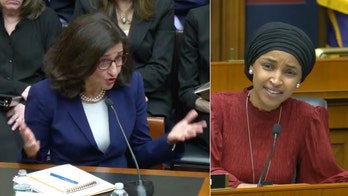People who appear to have an "addiction" to social media or video games are suffering from a "medical problem," according to Dr. Marc Siegel.
Dr. Siegel, a Fox News medical contributor and practicing internist, claimed Friday on "Tucker Carlson Tonight" it is detrimental when people choose to text and email others instead of enjoying "the richness of personal experience."
"I believe that social media and smartphone technology, and texting and emailing, not talking to you, what about -- whatever happened to the richness of personal experience?" Siegel asked.
FACEBOOK, COCAINE, OPIOIDS: HOW ADDICTIVE IS THE SOCIAL NETWORK?
People should be "looking at nonverbal cues, learning how to read people, learning what people want -- learning how to love, even. You are not going to learn how to love on a smartphone or Twitter."
Siegel insisted that if someone is addicted to video gaming or social media to the extent it interferes with how they live their daily lives, it is a "disease."
"If you are so addicted to video games that it's interfering with your daily function, when you can't perform whatever your work [or] school, that's a disease. That's how I define a disease," he claimed.
According to health specialists consulted by Fox News in 2017, the excessive use of social media may offer a similar short-term impact as using opioids.
Opioids directly impact the brain's reward system, Dr. Tara Emrani, a psychologist at NYU Langone Health, said.
She said they release dopamine, a chemical associated with pleasure-seeking — similar to what happens when someone receives a Facebook "like" or comments.
"Facebook likes and comments activate similar parts of the brain as opioids, where each like or positive comment activates the reward system and the brain releases dopamine," Dr. Emrani told Fox News via email. She noted similar sensations occur when someone eats food they enjoy.
Fox News' Chris Ciaccia contributed to this report.






